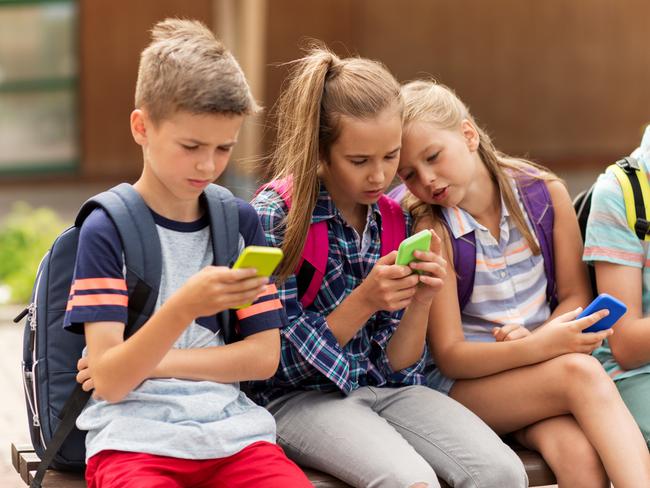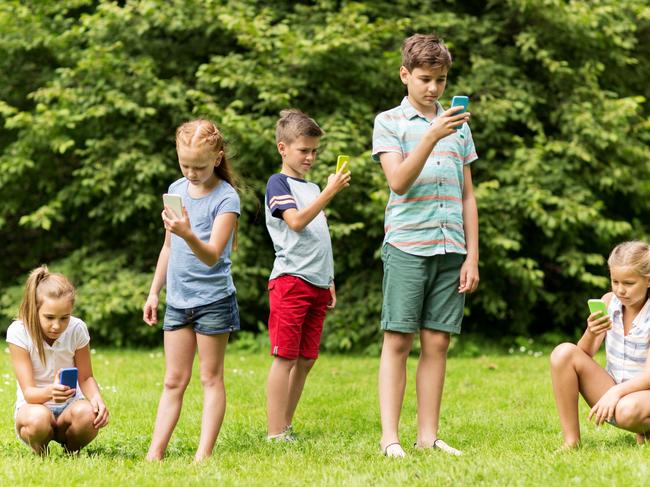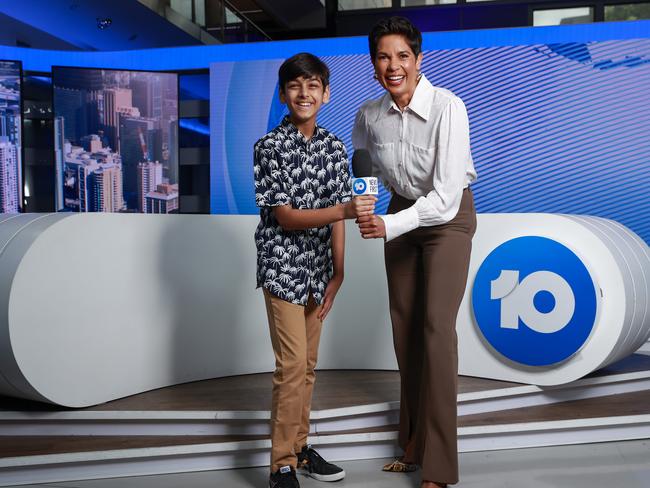News Corp Junior Journalist initiative: Kids News Junior Journalist Competition
The search is on for the next generation of news breakers with the Kids News Junior Journalist competition. See how to enter.
National
Don't miss out on the headlines from National. Followed categories will be added to My News.
Children are being bombarded online with more fake news than ever, but equipping them with basic journalism skills can help slow its spread, say experts.
Professor of political communication at La Trobe University Andrea Carson studies measures to mitigate fake news, and said dealing with misinformation and disinformation needs a multi-pronged approach.
“Fake news is not new, it’s something that’s been around for centuries but the aspect of it that’s new is obviously its capacity … to spread vastly quickly and globally,” Prof Carson said.
“And once that egg is scrambled, it’s very hard to unscramble it and that’s why it’s such a difficult problem, because we rely on quality information in order to make good judgments.”
She said while there needs to be greater collaboration between the platforms, government and other stakeholders, including academics, policy makers and journalists, initiatives such as the Kids News Junior Journalist competition were helpful.
“I really applaud the measures that News Corp is taking with the Junior Journalism initiative, because that’s part of that pre-bunking process of building resilience within the community, arming children with knowledge and skills to be able to develop media literacy,” she said.

The eSafety Commission, which was set up to protect children from online harm, said understanding how social media site’s recommender algorithms worked also played a role in slowing the spread of fake news.
“Unfortunately, the way algorithms often work means children and young people can end up in a negative feedback loop: the more potentially harmful content they engage with, the more of this material the algorithm will serve up, contributing to an increasingly isolated and damaging online experience,” Commissioner Julie In man Grant said.
“While this may be an unintended consequence of trying to keep people engaged online, technology companies have a responsibility – and the capability – to address this issue and protect users from harm.”
“Recommender systems can greatly amplify certain content or viewpoints. For children, this may limit the development of a capacity to understand nuance, complexity and alternative points of view.
“It is important they learn skills and tools to identify when they are being targeted by content, and understand how an algorithm may shape their experiences, feelings, or reasoning.”
Kids News editor Kamahl Cogdon said it was important to have safe online spaces for kids to consume news.

“Often when there’s bad news we get very protective of our kids but there’s also opportunity for kids to be engaged in news and become news makers and news breakers,” she said.
“A lot of them are on Tik Tok and social media and a lot of those platforms can be a source of news, but it’s not always reliable news.
“We want to encourage them to use trusted news sources, and even more than that, learn how they can be part of the trusted and reliable news making process.”
Professor of communication at Edith Cowan University Lelia Green has been researching children’s lives online since 2002 and said there was merit in exposing young people to news.
“I feel that children have a lot of very interesting perspectives and we ignore them at our peril,” she said.
“Like everyone, they have their strengths and weaknesses.
“We tend to dismiss their realisation and lack of reality because they don’t need to worry about earning money and putting food on the table but I think we can learn a lot from their wide-eyed realism.”
ENTER THE KIDS NEWS JUNIOR JOURNALIST COMPETITION
The search is on for the next generation of news breakers with the Kids News Junior Journalist competition.
The free competition is open to children in Years 3-9, with four categories for both primary and secondary students:
News story – print
News story – video
Sports story – print
Sports story – video
The grand prize winner will score a guest appearance on Channel 10’s Studio 10 program, hosted by Narelda Jacobs.
Jacobs, a television journalist for more than 20 years, said it was important for kids to take an interest in news.
“Knowledge is power,” she said. “Events and issues being reported on impact children either now or into the future.
“Knowing what’s going on in the world around them, can empower kids to form their own opinions and ideas.”

Aditya Paul, 11, is a keen writer and considering a career in the media. He’s already honing his interview skills, featuring in the Kids News Junior Journalist video series, which contains tips for budding reporters.
As well as the Studio 10 grand prize, there are four $750 gift cards for primary students and four $1000 gift cards for secondary students up for grabs.
Kids can submit written and video entries to the Junior Journalist competition from February 6 to April 6.
HOW KIDS CAN ENTER THE KIDS NEWS JUNIOR JOURNALIST COMPETITION
* Write a story or create a video story about something that has happened or is about to happen in your school or local community. Your story should be factual. Check out the Junior Journalist videos for tips.
* Download the consent form HERE and get your parent or guardian to fill it in.
* Download the entry form HERE and get your teacher to fill it in.
* Email your written or video story, along with the completed consent and entry forms, to juniorjournalist@news.com.au before 5pm on April 6. Video entries should be submitted as a MP4 file.
Click HERE for the full Terms and Conditions.



